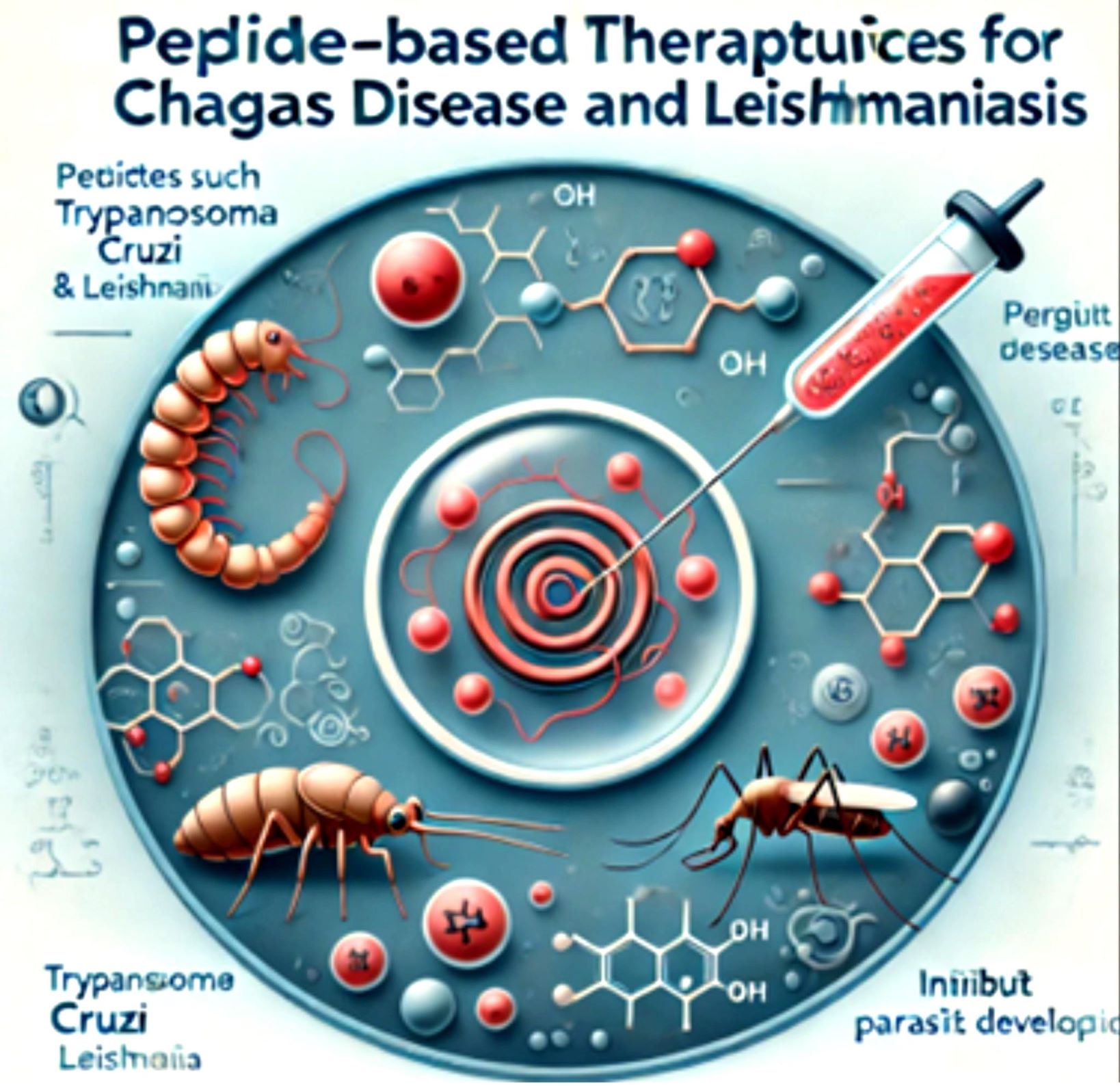Overlooked Threats: The Unmet Need for Better Treatments
Chagas disease and leishmaniasis are neglected tropical diseases that affect millions worldwide, with leishmaniasis ranking as the second most widespread vector-borne parasitic disease after malaria. Approximately 25 million people are at risk of Chagas disease, with an estimated 6 million currently infected with Trypanosoma cruzi. Despite their global impact, effective treatment options remain scarce, highlighting the urgent need for novel therapeutic strategies.
A Promising Approach in Medicine
Peptide therapeutics provide high specificity, low toxicity, and the ability to selectively regulate protein-protein interactions, making them valuable for addressing diseases with limited treatment options. By targeting key proteins involved in disease progression, peptides can modulate critical biological processes, offering a promising strategy for therapeutic intervention. In the context of neglected tropical diseases, peptides are designed to target proteins in the developmental stages of parasites, suppressing their activation and disrupting disease progression. This approach has the potential to improve treatment efficacy and overcome the limitations of existing therapies.
Our Mission and Goals
At Qvit Lab, we focus on developing peptide-based drugs to overcome the limitations of existing treatments. Our research targets selective proteins involved in the developmental stages of these parasites, aiming to suppress their activation using peptide therapeutics. By leveraging cutting-edge peptide design and screening techniques, we strive to develop innovative, targeted treatments that offer improved efficacy and specificity against these devastating diseases.

